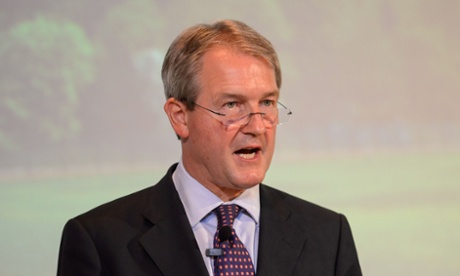What follows is a comment on this Washington Post article by Tamar Haspel:
We should expect more of these "both sides" articles on the GMO debate.
Very early on in the article she boils the debate down to right vs. left. It is not that simple at all. Some wingnuts and Christian fundamentalists oppose GMO's for their own anti-science, conspiranoid wacko reasons (Alex Jones comes to mind). And some in the left just love GMO's, including Cuba's Communist Party, and the progressive governments of Brazil and Uruguay, and the president of Ecuador. Leading Democrats, including Gore, Clinton, Jimmy Carter, and good ol' Barack, are pro-GMO. To make the picture more complex, the Rockefeller Foundation, longtime funder of prog causes and groups (like Planned Parenthood), was a prime mover of the Green Revolution and is strongly pro-GMO biotech. So no, Ms Haspel, this cannot be boiled down to right vs left.
This statement in the article is a total misrepresentation of public concerns about biotech:
"GMOs are relatively new, poorly understood by many consumers, and in violation of our sense that food should be natural. Not only are those risks uncertain and dreaded, they’re visited on people trying to feed their families healthfully and safely while the benefits accrue to farmers and biotech companies."
"Reasoned debate requires that we weigh risk against benefit, and GMOs undoubtedly have both. (Harvard's) Hammitt suggests looking for sources that discuss the trade-offs rather than just one or the other."
Haspel's "both sides" discourse accuses both sides in the debate of reaching foregone conclusions. But by assuring that there are tradeoffs, she shows clearly that she has foregone conclusions of her own. We saw this in the global warming debate. The "both sides" approach only served to confuse the public and resulted in the waste of precious time while the evidence of global warming became increasingly overwhelming and irrefutable.
It does not occur to Haspel that maybe one side in the debate is right. If she openly goes pro-GMO, she loses credibility. If she tilts against GMO's she'll probably be out of a job. So she seems to be playing a complicated game here, a balancing act which, if done right, will set Haspel up as "Ms Credible" in the biotech debate.
She quite perceptively notes that:
"I couldn’t find the American Association for the Advancement of Science discussing GMO risks (although its journal, Science, does), and the Union of Concerned Scientists doesn’t talk about benefits."
However, this observation does not settle anything.
The article keeps getting worse after that.
Predictably, Haspel approvingly notes that the National Academies, the American Medical Association, the World Health Organization, the Royal Society and the European Commission are all favorable to GMO.
"I’m not the first journalist to notice the consensus. Science-oriented publications including Nature and Scientific American have taken a hard look at safety and also concluded there’s no evidence that GMOs are bad for us. Nathanael Johnson, who’s doing yeoman’s fact-finding work at Grist.org, concurs."
Johnson doing "yeoman’s fact-finding work"? Haspel should be doing some fact checking herself about this individual.
"There are dissenters, but I couldn’t find one that passed the test. Joining Earth Open Source and the Union of Concerned Scientists are the Non-GMO Project, the Center for Food Safety, the Institute for Responsible Technology, the American Academy of Environmental Medicine and GMWatch."
For all her "balance", Haspel is quite clearly pro-GMO. Again, expect more of this "both sides" drivel in the not too distant future.


 Complete with news, resources, campaigns and an interactive online seed map, Seedmap.org is a valuable teaching & advocacy tool and reference point on seeds, biodiversity, and food.
Complete with news, resources, campaigns and an interactive online seed map, Seedmap.org is a valuable teaching & advocacy tool and reference point on seeds, biodiversity, and food. In 2007, the update of a 1992 teaching kit evolved into a collaboration between USC Canada and ETC Group to create the hard copy wall-sized Seed Map. The Seed Map: Food, Farmers and Climate Chaos, chronicled the planet’s plant genetic wealth, how it is threatened, what are the solutions – all laid out in a physical map. It was a runaway success. More than 15,000 copies have travelled the world, in 7 languages.
In 2007, the update of a 1992 teaching kit evolved into a collaboration between USC Canada and ETC Group to create the hard copy wall-sized Seed Map. The Seed Map: Food, Farmers and Climate Chaos, chronicled the planet’s plant genetic wealth, how it is threatened, what are the solutions – all laid out in a physical map. It was a runaway success. More than 15,000 copies have travelled the world, in 7 languages.


